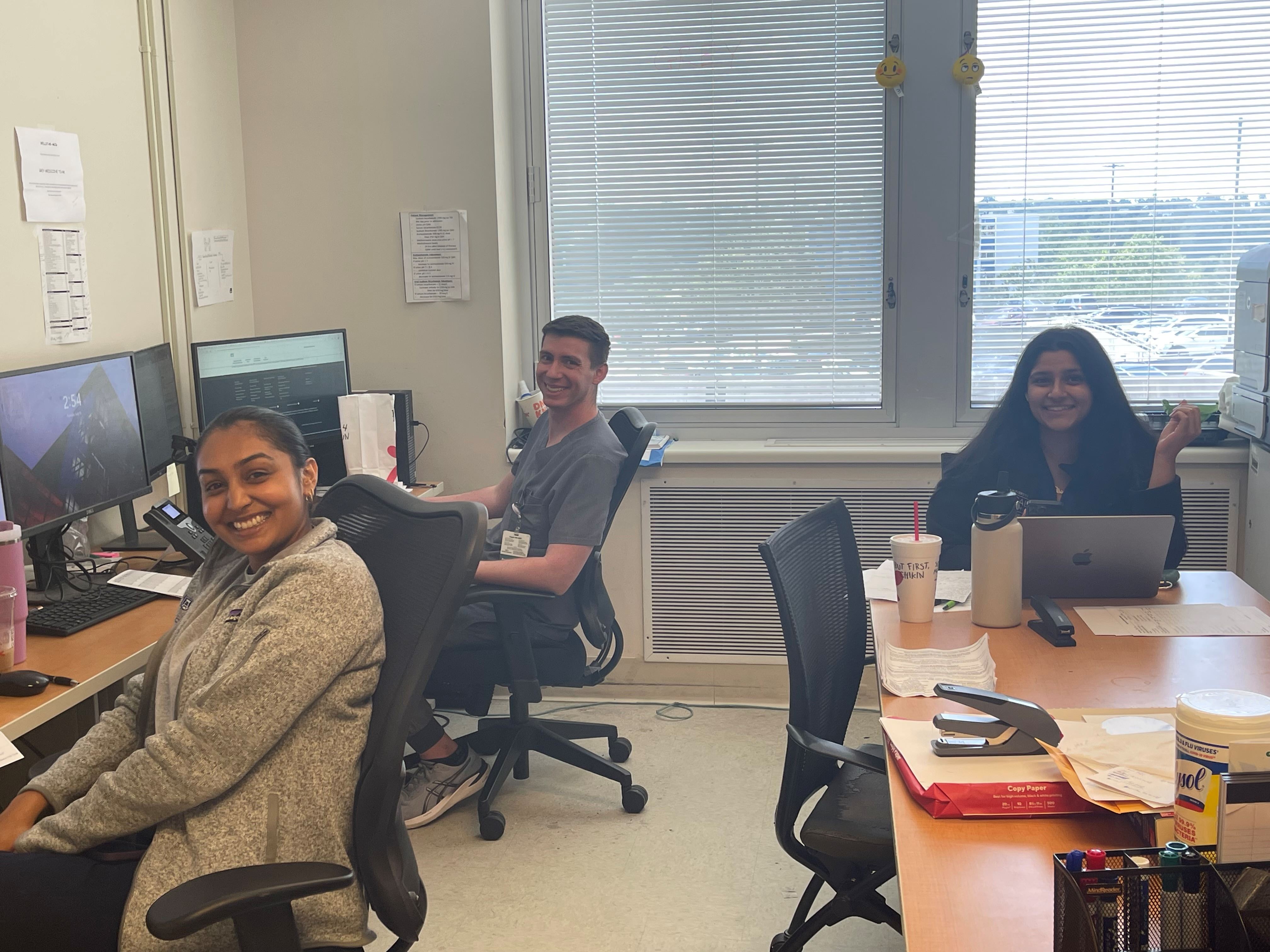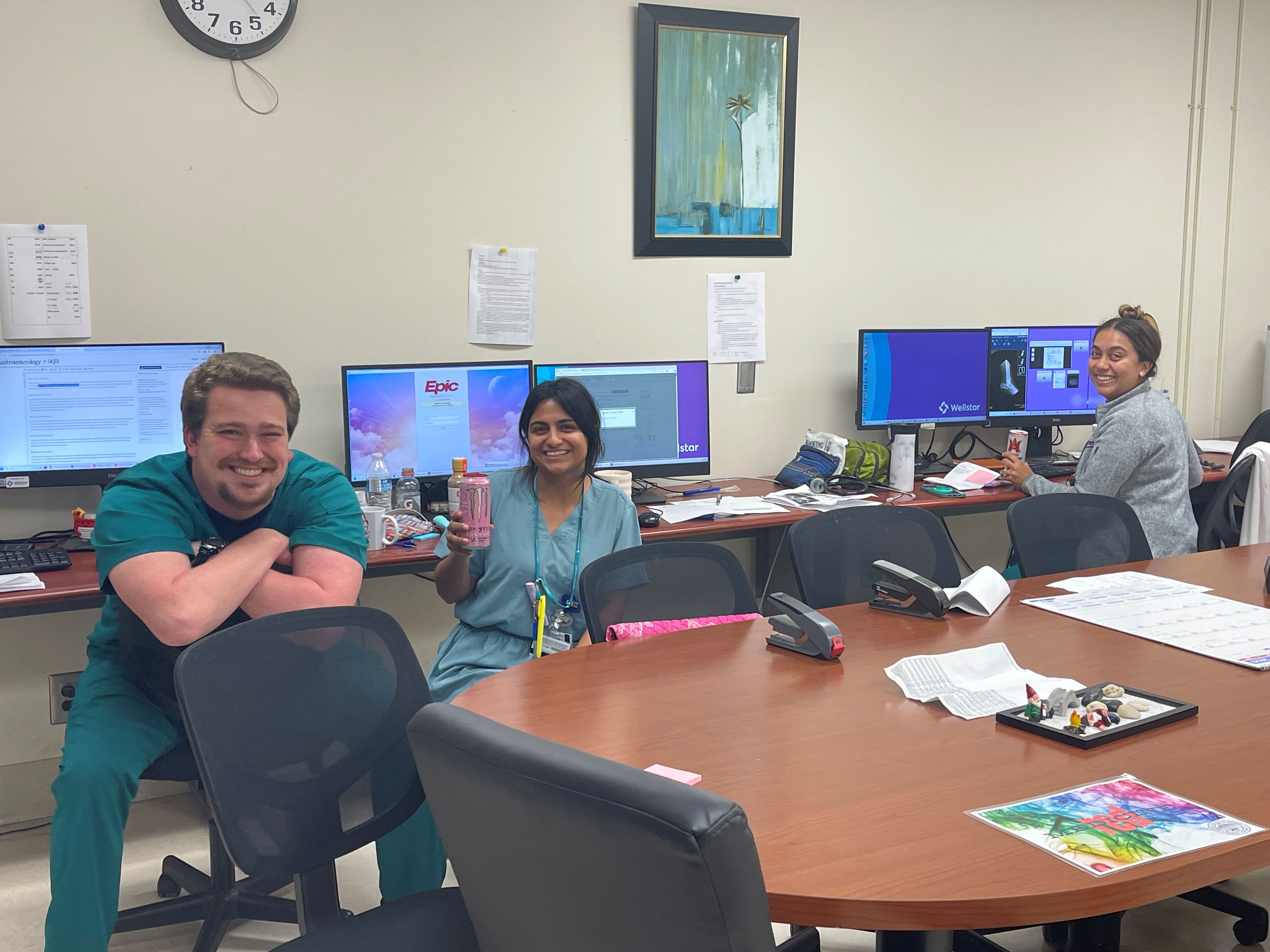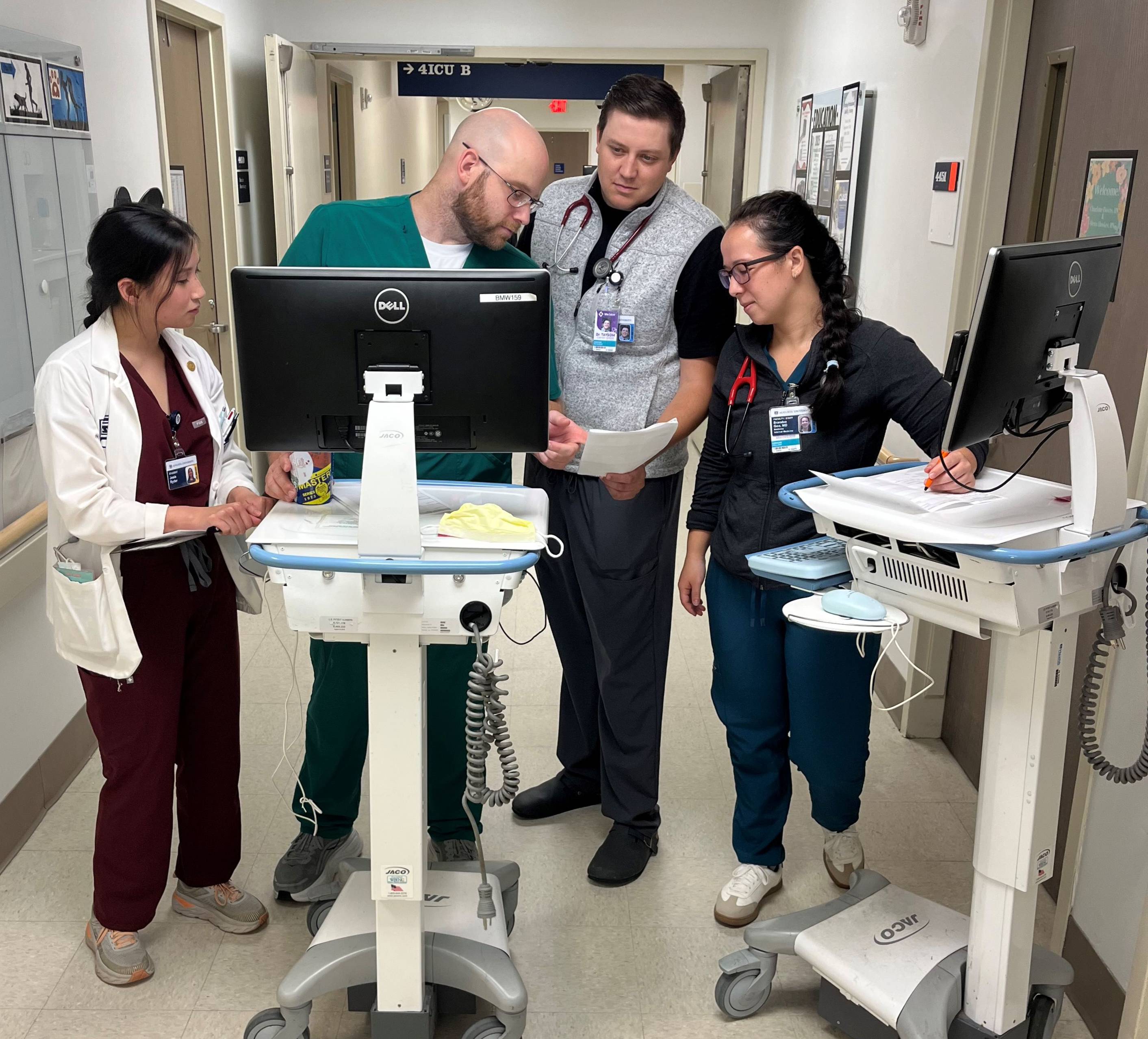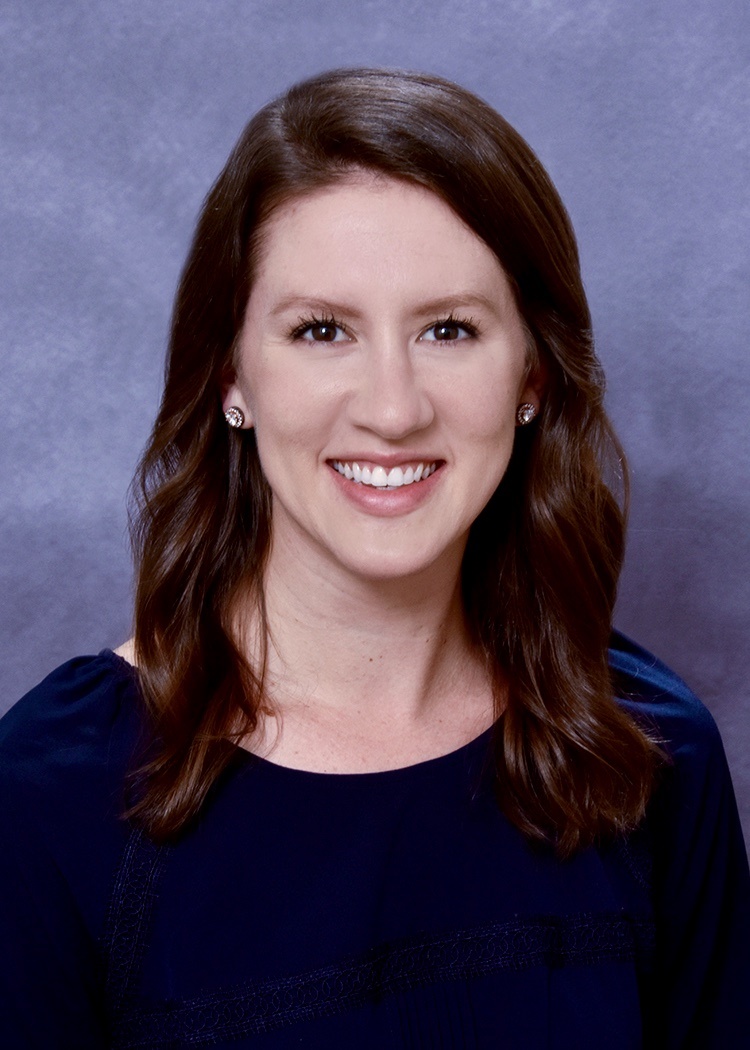
Program Overview
During your residency you will develop the tools necessary to become comprehensive internists capable of managing diverse patients with a broad range of diseases. Your training will prepare you for any field of medicine you are interested in, whether you pursue a career in General Internal Medicine, subspecialty medicine, or academic medicine.
2024-2025 Internal Medicine Curriculum
Essential Functions of a Resident
Residents must manage the care of patients across a variety of clinical settings, provide safe and quality care, and are required to work day, evening, and overnight shifts of varying length and intensity, as well as be available, dependable, and fit to work when called in for “back up” when an assigned resident is absent. Care of patients includes, but is not limited to: obtaining history and physical exams, performing procedures and responding to rapid response team and code blue calls, complex medical decision making including diagnostic and therapeutic plans, directing and coordinating interprofessional team, communicating and educating patients and updating families, documenting H&P and daily progress notes.
Residents participate in clinical rotations that are sufficient in length and continuity to provide meaningful assessment and feedback regarding development and implementation of management plans for patients with multisystem disease and comorbid conditions and they are able to modify management based on clinical course.
Residents must be fit to work up to 80 hours per week, averaging one day off in seven, and be able to care for up to 20 patients when supervising more than one PGY1 Intern as per ACGME requirements. They must possess sufficient sensory and motor function to elicit information from patients by palpation, auscultation, percussion and other diagnostic maneuvers. It is essential that residents are able to perform all job functions while dressed in protective clothing required for clinical duties, including tolerating a mask, gown, and gloves. They need to be able to travel throughout the Medical Center to address routine and emergent patient care issues and to attend required educational programs. Residents must be present and maintain ABIM board eligibility.
Residents lead clinical teams, supervise and directly observe PGY1 Interns and medical students, and adapt their communication style in order to cultivate an academic, safe, and inclusive environment that fits the interprofessional team needs, exhibits good professional judgement, reconciles conflict, and provides difficult feedback. They have the emotional maturity to self-assess, know own limitations and seek advice or counseling in situations that might impair their own learning or performance in the care of patients, and to proactively seek appropriate treatment including leaves of absence.
Residents perform administrative tasks, communicate with supervising staff, and perform patient care responsibilities in a timely manner in complex or stressful situations. Administrative tasks include but are not limited to utilizing computers for completing clinical documentation, decision support, research, education, and timely follow-up of test results.
Inpatient
Inpatient medicine is a cornerstone of internal medicine residency training. Our program at Augusta University offers an ideal training ground that allows for our residents to rotate through all major subspecialties, learn in intermediate and critical care settings, and experience a diverse spectrum of pathologies that can only be found at a tertiary care facility.



Training for our residents is structured around the goal of shaping modern-day physicians who have the kind of well-rounded skillsets suited to handle the unique challenges we are facing in medicine today. This includes access to the training and equipment to perform bedside ultrasound and procedures. Didactics while on an inpatient service include morning reports (a journal club, overnight cases, interesting “Case of the Week” presentations, etc) and more traditional noon conferences taught by faculty in those subspecialties. There is a separate SIM Curriculum and Ultrasound Curriculum woven into the noon conference lecture series. We have found that the pace of a rotation is also important to maximize learning and well-being during a long residency – and so, in addition to a 4+2 block schedule, we have cultivated a Q4-call cycle for our General Medicine Ward Teams allowing for a balanced experience between a busy call day and learning about patients.
(3 traditional academic teams)
1 Attending
1 Resident
2-3 Interns
Q4 call (7am-7pm), Can sign out patients to cross cover team on non-call days at 3 pm
(1 Hospitalist-Style Academic Team)
1 Attending
2 residents
(3 academic teams)
1 Attending
1 Resident
2-3 Interns
AU MICU
(2 academic teams)
1 Attending
1 Fellow
2 Residents
2 Interns
1 Attending
1 Fellow
1 Resident
1 Intern
1 Attending
1 Fellow
2 Residents
2-3 Interns
1 Attending
2 Residents
2 Interns
1 Attending
1 Fellow
1 Intern
At AU, we are dedicated to providing both excellent outpatient resident education and comprehensive care for our patients.
Preliminary Intern Year
The preliminary year is tailored for medical graduates seeking internal medicine training before transitioning to residencies in specialties such as neurology, dermatology, radiology, amongst others. The one-year internship is immersive in inpatient general medicine, cardiology, nephrology, hematology/oncology, and critical care. It aims to establish essential competencies in caring for a variety of patients, which will prove invaluable in future careers across a spectrum of specialties. Your schedule as a preliminary intern follows the same framework as categorical interns. You will also be provided elective time to be able to rotate with your chosen specialty. We are excited to help you achieve your career goals!
A resident’s outpatient week in the 4+2 schedule has each resident spend time both in their personal internal medicine continuity clinic and in specialty clinics.
In the general internal medicine clinic, residents care for their longitudinal primary care patients with our dedicated academic outpatient internal medicine attendings. In the outpatient specialty clinics, residents have the opportunity to work with academic faculty in each internal medicine specialty. In our outpatient internal medicine clinics, we serve as primary care physicians for our diverse community, providing care to people of all backgrounds. We work with our dedicated clinical staff, pharmacists, translators, care coordinators, and others to provide patient-centered care for each patient. Our residents see patients at either AU Health Clinic, located inside the Medical Office Building (MOB) or at the Uptown VA, just a few minutes away.

Kate W. O’Connor
- Ambulatory Care Pharmacy Residency Program Coordinator; Ambulatory Care Clinical Pharmacist, Internal Medicine Clinic
- Department of Pharmacy
- Collaborate with residents in the Medicine Continuity Clinic to assist with clinical care plan development, drug information requests, and patient education in a team-based environment.
- Facilitate learning via participation in weekly didactic sessions, presentations at noon conferences, contribution to journal club discussions, and informal pharmacotherapy discussions.
- Serve as a pharmacotherapy resource for ambulatory care-related topics for all internal medicine residents.
Fill out my online form.